











Read More
Understanding the fundamentals of computer programming languages and databases is of utmost importance in the field of computer science and information technology. The Bachelor of Computer Application (BCA) Programme has been designed in sync with the latest industry demands. This programme enriches the students with the necessary skills to build a successful career in the Information Technology sector. Through this programme, we intend to create a skilled workforce to take up future challenges in the industry. It aims at educating the students as expert programmers and computer professionals for the future.
Year wise Course Details
Courses for this semester
This course is an introduction to Digital Electronics, with topics ranging from basic number system, logical gates, truth table, K-maps, encoder, decoder, counter etc.
The course emphasizes problem-solving and empirical skills through the process of designing, implementing, and executing C programs. Also, this course aims to provide exposure to problem-solving through programming.
This course is about the basic mathematics that is fundamental and essential component.
fundamental of computer application course includes fundamental of computer components, block diagram, software and hardware. Basic computer networks and some application S/W.
This course introduces fundamental algorithms and problem-solving techniques essential for developing efficient and effective computational solutions. It focuses on understanding algorithmic principles and applying them to real-world problems.
This course provides a foundational understanding of version control using Git and collaborative development using GitHub. It is designed for beginners to learn how to manage code changes, collaborate with others, and streamline their development workflow.
This course introduces the principles of statics, a branch of mechanics dealing with forces and their effects on stationary objects. It aims to provide a solid foundation in understanding how forces interact and how they can be analyzed to ensure stability and equilibrium in structures and systems.
Courses for this semester
Computer architecture is a blueprint for the design of a computer system and describes the system in an abstract manner. It describes how the computer system is designed. On the other hand, computer organization is how operational parts of a computer system are linked together.
Data structures in C is a way of storing and organizing data in the computer memory so that it can be processed efficiently. Data structures can be broadly classified into two categories – Primtive and Non-Primitive. Non-primitive data structures can be further classified into two categories – Linear and Non-linear. Linear data structures include arrays, stacks, queues, linked list and Non-linear data structures include trees and graphs.
Web technology refers to the means by which computers communicate with each other using markup languages and multimedia packages. It gives us a way to interact with hosted information, like websites. Web technology involves the use of hypertext markup language (HTML) and cascading style sheets (CSS).
The Fundamentals of Management course introduces students to the core principles, concepts, and functions of management. It covers planning, organizing, leading, and controlling within an organization, helping students develop essential managerial skills for various business environments.
This course provides an introduction to the fundamental concepts and techniques of graph theory, a key area in discrete mathematics. It explores the structure and properties of graphs and their applications in various fields, including computer science, operations research, network analysis, and social sciences. Topics include basic definitions (vertices, edges, degree, paths, cycles), types of graphs (directed, undirected, weighted, bipartite, trees).
This course explores the fundamental mathematical concepts required for programming and their application. It covers arithmetic operations, logical and Boolean expressions, control flow, number systems, bitwise manipulation, and data representation through arrays and matrices. Students will gain hands-on experience in designing and implementing mathematical solutions for real-world computational problems, preparing them to write efficient and optimized.
Courses for this semester
DBMS (Database Management System) is a course that focuses on the efficient management and organization of data. It covers fundamental concepts like database models (relational, hierarchical, network), data structures, and query languages (SQL). Students learn to design, create, and maintain databases, ensuring data integrity, security, and performance. The course also emphasizes data modeling and normalization.
An operating system (OS) course delves into the core software that manages computer hardware and software resources, serving as an intermediary between users and the machine. It covers fundamental concepts like process management, memory management, file systems, input/output operations, and security. Students explore how OSes handle multiple tasks, allocate resources efficiently, and provide a user-friendly interface. Advanced topics may include system calls, inter-process communication, deadlocks, and distributed systems.
Object-Oriented Programming (OOP) in Java is a programming paradigm centered around the concept of objects, which encapsulate data (attributes) and behavior (methods). This course delves into the foundational principles of OOP, including classes, objects, inheritance, polymorphism, encapsulation, and abstraction. Student will learn how to model real-world entities as objects, build reusable code, and create efficient, maintainable software applications using Java's object-oriented features.
Web and Mobile Programming Technologies is a course that equips students with the skills to design, develop, and deploy interactive web and mobile applications. It covers a wide range of technologies, including HTML, CSS, JavaScript, and various frameworks for building user-friendly interfaces. Students will also learn about server-side programming, databases, and mobile application development platforms to create dynamic and responsive applications that cater to diverse user experiences across different devices.
A Fundamentals of AI/ML course provides a foundational understanding of artificial intelligence and machine learning concepts, including supervised and unsupervised learning, neural networks, data preprocessing, and model evaluation. It equips learners with the ability to solve real-world problems using AI techniques, while also emphasizing ethical considerations and the potential impact of AI on society.
Information Security & Cryptosystems is a course that delves into the protection of information and systems from unauthorized access, use, disclosure, disruption, modification, or destruction. It covers fundamental cryptographic concepts, algorithms, and their applications in securing digital data, communication, and networks. Students will explore various cryptographic techniques, analyze their strengths and weaknesses, and understand the mathematical foundations underpinning modern cryptosystems, while also gaining insights into the evolving landscape of cyber threats and countermeasures.
Introduction to Hardware and Operating Systems is a course that delves into the fundamental components of computers, exploring the inner workings of hardware components like the CPU, memory, storage, and input/output devices. It further examines the role of operating systems in managing these hardware resources, executing applications, and providing a user interface. This course equips learners with a solid foundation in computer architecture and the software-hardware interplay, essential for understanding how computers function and troubleshoot common issues.
Introduction to Digital Marketing provides a comprehensive overview of the dynamic digital landscape. Students will explore the fundamental concepts, tools, and strategies essential for effective online marketing.
Internet Concepts and Web Design introduces students to the fundamental structure and operation of the internet, exploring its history, protocols, and services. The course delves into the principles of web design, encompassing HTML, CSS to create interactive and visually appealing websites.
Computer Application Techniques is a course designed to equip students with practical skills in utilizing computer software and applications effectively.
Courses for this semester
Design and analysis of algorithms is a field that covers the design and analysis of algorithms to solve problems in computer science and information technology. It's an important part of computational complexity theory, which provides theoretical estimates of the resources needed to solve a computational problem.
Acquire knowledge and skills needed for performing the hacking process. Understand the various hacking methodologies. Analyze the hacking process on different platforms and the formal reporting writing process.
This course provides a comprehensive understanding of managing cybersecurity incidents, including planning, detection, containment, and recovery. Students will learn to develop incident response plans, analyze threats, and apply tools for effective defense. Emphasis is placed on real-world challenges like cloud, IoT, and AI-driven responses, enhancing readiness for evolving cyber threats.
The Computational Systems and Digital World course is typically designed to introduce students to foundational concepts in computer science and the digital technologies that shape modern society. This course combines theoretical and practical knowledge to help students understand the principles of computing, the structure of digital systems, and their impact on the world.
This course provides an in-depth understanding of content marketing, a critical component of modern digital marketing strategies. It focuses on creating, delivering, and managing valuable content to engage and retain a well-defined target audience. Learners will explore the theoretical and practical aspects of content marketing, including content creation, strategy development, and performance measurement.
Python has a simple syntax similar to the English language. Python has syntax that allows developers to write programs with fewer lines than some other programming languages. Python runs on an interpreter system, meaning that code can be executed as soon as it is written.
A computer network consists of various kinds of nodes. Servers, networking hardware, personal computers, and other specialized or general-purpose hosts can all be nodes in a computer network. Host names and network addresses are used to identify them. In this article, we are going to discuss computer networking in detail.
Linux is a free, open-source operating system (OS) that connects a computer's software and hardware. It was created by Linus Torvalds in 1991 and is similar to UNIX. Linux is used in a variety of devices, including smartphones, cars, home appliances, and supercomputers.
Data analytics using Python courses teach students how to use Python to analyze, manipulate, and interpret data. Some topics covered in these courses include: Python fundamentals: Students learn the basics of Python, a programming language that's popular for data analysis and science. Students learn how to use libraries like Pandas, NumPy, Matplotlib, and Seaborn to process and visualize data. Students learn how to clean and preprocess data. Students learn how to apply statistical analysis techniques. Students learn how to build predictive models
This course provides an introduction to the diverse applications of Artificial Intelligence (AI) across various domains, offering insights into its potential and impact. It focuses on equipping learners with the knowledge and skills to apply AI techniques for solving practical problems. Emphasis is placed on understanding real-world applications of AI, bridging the gap between theoretical concepts and their practical implementation.
Courses for this semester
Java is a versatile, object-oriented programming language renowned for its platform independence, security, and robustness. A Java programming course typically covers a wide range of topics, from foundational concepts to advanced features.
Cloud computing is the delivery of computing services—including servers, storage, databases, networking, software, analytics, and intelligence—over the Internet (“the cloud”) to offer faster innovation, flexible resources, and economies of scale.
This course aims at practical revision of important programme-specific concepts taught in previous semesters.
This course delivers a comprehensive introduction to the principles and real-world applications of artificial intelligence (AI) and machine learning (ML). The students will gain hands-on experience with data preprocessing, feature engineering, and model building using industry-standard tools. The course covers different ML algorithms and their implementation. Additionally, the students will delve into the ethical considerations of AI, learning about bias, fairness, and transparency to help you implement AI solutions responsibly. By the end of this course, students will have the skills to develop effective AI and ML models that address real-world problems while considering their broader societal impact.
Business Intelligence is a comprehensive approach to collecting, integrating, analyzing, and presenting business information to support better decision-making. This course delves into the technology behind BI, exploring how it aligns with organizational strategies and goals. Student will learn to extract meaningful insights from data, create compelling visualizations, and build interactive dashboards to monitor key performance indicators. By understanding BI concepts and tools, student will be equipped to drive data-driven decisions and gain a competitive edge
Data Analytics using Python equips students with the practical skills to extract valuable insights from data. They will master Python programming, data manipulation techniques using libraries like Pandas and NumPy, and exploratory data analysis to uncover hidden patterns. The course emphasizes data visualization with Matplotlib and Seaborn, enabling students to communicate findings effectively. Building on these foundations, you'll delve into statistical analysis and machine learning concepts to make data-driven predictions and decisions, ultimately transforming raw data into actionable knowledge.
Knowledge Engineering is a branch of artificial intelligence focused on building computer systems capable of mimicking human decision-making and problem-solving. It involves capturing expert knowledge, representing it in a structured format, and integrating it into intelligent systems. Key areas include knowledge acquisition, representation, reasoning, and validation. By developing knowledge-based systems, organizations can automate complex tasks, improve decision-making, and preserve human expertise.
The MEAN Stack Developer course provides a comprehensive understanding of building dynamic web applications from the ground up. It covers MongoDB for flexible data storage, Express.js for efficient server-side development, AngularJS for creating interactive front-ends, and Node.js for powering the ja<x>vascript runtime environment. Students will learn to seamlessly integrate these technologies, mastering full-stack development and creating robust, scalable applications.
Courses for this semester
Computer vision means the extraction of information from images, text, videos, etc. Sometimes computer vision tries to mimic human vision. It’s a subset of computer-based intelligence or Artificial intelligence which collects information from digital images or videos and analyze them to define the attributes.
Applied AI and Machine Learning (ML) courses teach students how to use advanced machine learning to improve software applications and business processes. Students learn how to create intelligent systems that can learn and perform tasks without explicit programming.
The Exploratory Data Analysis with Python course on Anaconda Learning is an interactive course that teaches students how to extract insights from large datasets. The course uses visualizations and charts to help students learn how to: Collect, clean, and transform data, Detect outliers and key patterns, Identify relationships among variables, Describe data insights using descriptive statistics, uni/bi/multivariate analysis, geospatial, and time series analysis.
The course "Applied Analytics in Natural Language Processing (NLP)" is designed to provide a comprehensive understanding of how analytical methods and computational techniques are applied to derive meaningful insights from unstructured text data. The course bridges the gap between theoretical NLP concepts and their real-world applications in various industries.

CST- Common scholarship test is a national and international level online MCQ based examination funded for intellectual empowerment by Assam down town University.
CST- Maximum enrolment each year is 269 seats and any 10+2 students can apply. Adtu is northeast India’s first placement driven university to provide 100% scholarship benefits worth 30 cr.
CST aims to inspire brilliant and competent students to pursue further education. Accredited with a prestigious grade by NAAC, UGC and AICTE.
Explore more scholarships that can help you reach out your goal with financial aid.
This scholarship is valid on the basis of the board/university examination
| 95% & above | 100% Scholarship on all semester |
| 90%-94.9% | 50% Scholarship on all semester |
| 80%-89.9% | 25% Scholarship on all semester |
This scholarship is valid on the basis of the board/university exam
| National & International Level | 100% Scholarship on all semester |
| State Level | 50% Scholarship on all semester |
| District Level | 25% Scholarship on all semester |
This scholarship is valid on the basis of the board/university exam
| National & International Level | 100% Scholarship on all semester |
| State Level | 50% Scholarship on all semester |
| District Level & NCC Certificate Holder | 25% Scholarship on all semester |
Discover a multitude of world-class amenities and cutting-edge resources at Assam down town University, enhancing your academic journey to new heights.
The Start-Up & Incubation Centre at Assam down town University provides a supportive environment for young entrepreneurs to develop and grow their business ideas. The center provides mentorship, funding, and networking opportunities to help innovative ideas become successful businesses.
SFURTI scheme to support rural entrepreneurs and innovators, an initiative by the Ministry of MSME
TIDE 2.0 scheme for ICT-based startups which provides a grant of Rs. 4L and Rs. 7L under EiR and Grant categories respectively, an initiative by the Ministry of MeitY.
dtVL Ideation, an incubation program for early-stage entrepreneurs with a market-ready solution/product, offering interest-free loans up to Rs. 2 lakhs.
Sprout UP, an incubation program for students, faculties, and researchers with innovative business ideas, prototypes, or technology solutions.








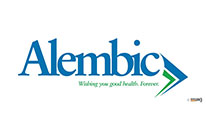








.png)


![24[7].ai 24[7].ai](https://adtu.in/files/247ai.jpg)


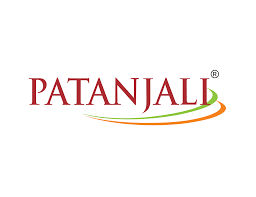

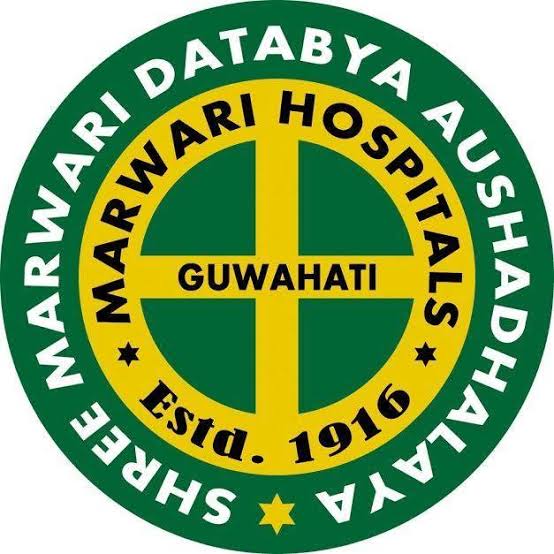





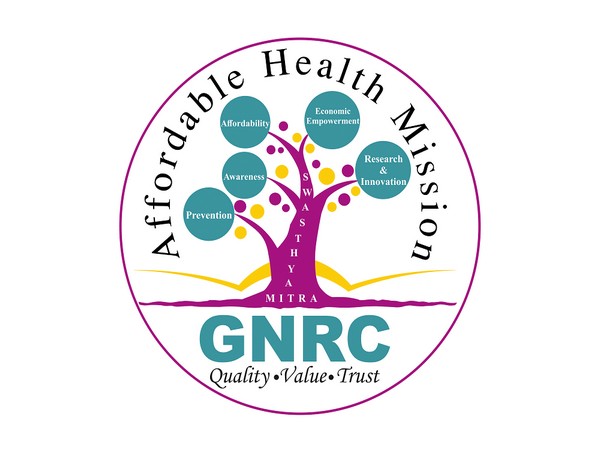
.png)



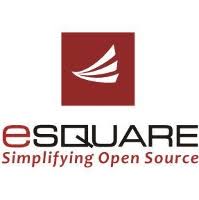






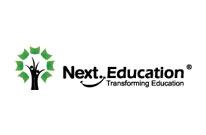

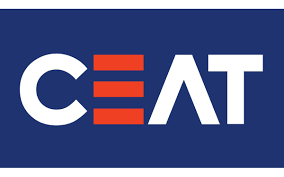




"I am a BBA student of 3rd semester. I hail from Bhutan. I vow that I am having a great experience i...
"AdtU is amazing. I am a BBA student of 2019-22 batch and I am just grateful for the amount of oppor...
Let us be grateful to the people and place who makes us happy. They are the charming gardeners whom ...
Currently I am pursuing MBA in Assam Down Town University. MBA is the professional course through wh...
AdtU is a university that focuses on giving knowledge, education and simultaneously making the stude...
The Assam downtown University has been a great learning experience. The university has provided me w...
My experience with AdtU has been splendid one indeed. Little needs to said about its scenic infrastr...
As a student I am very glad that I have got an opportunity to study here in Assam downtown universi...
My name is Sakhyajit Roy. I?m from Tripura. I joined the university on Auguest, 2017 as a student of...
I share immense pleasure to share my post graduate program experience in Assam down town University....
AdtU is a platform where I got golden opportunities to feed my zeal for knowledge through the dynami...
I am fortunate to get an opportunity to study here in Assam Downtown University. The best thing abou...
Our university is one of the best place for developing ourselves in the field of research and acedem...
ADTU is a university that is very good interms of infrastructure, academics and placements. Our tea...
It is one of best private colleges in North East India, it also provides a good environment for ed...
ADTU is a good University which provides the students with best quality lectures and ensures comfort...
The environment of Assam downtown university is very pleasant.The department of BMLT is very good a...
The university has all the necessary facilities and amenities for students . The classrooms and the ...
Assam downtown University is well recognised all over india. In the ongoing pandemic situation it ha...








